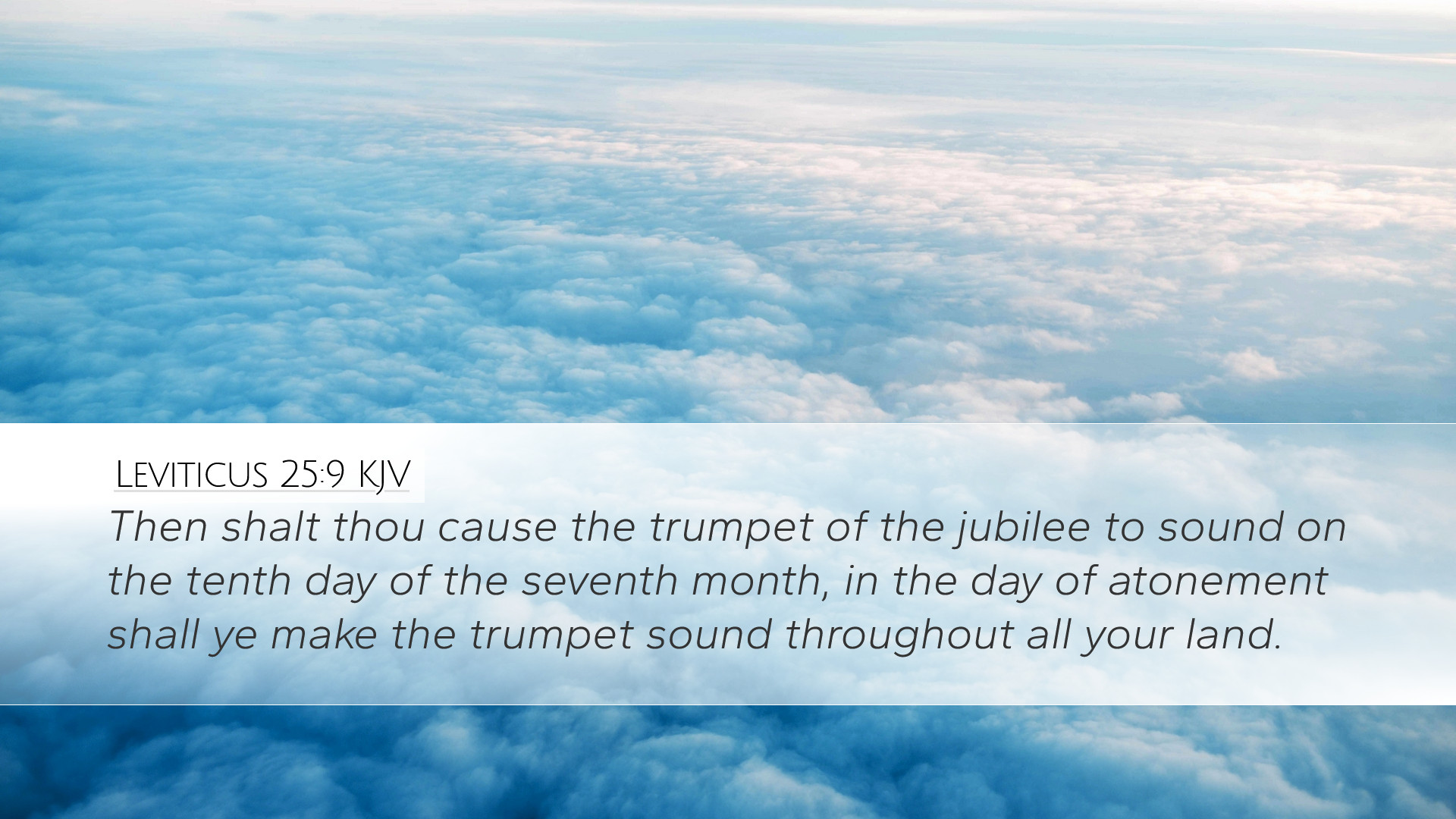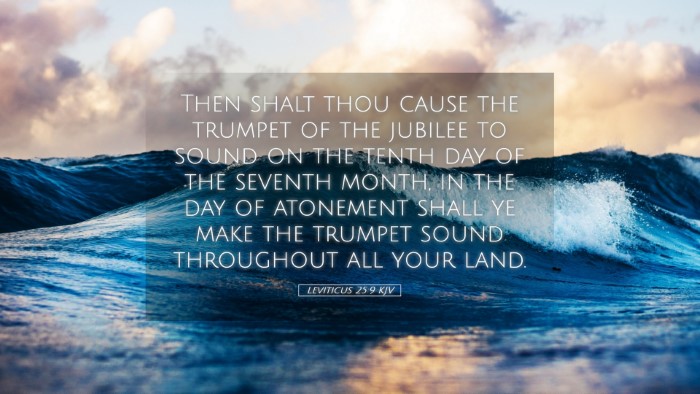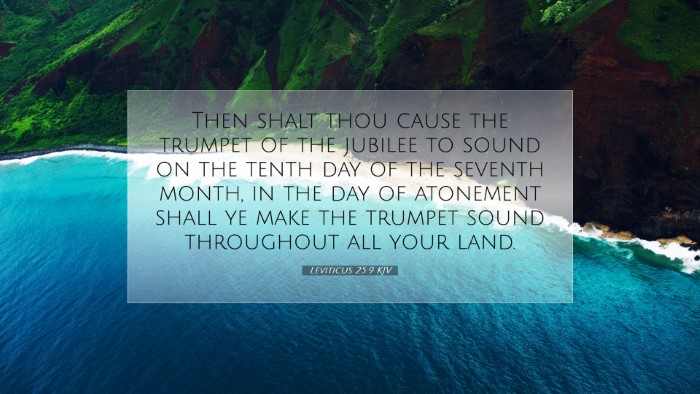Leviticus 25:9 - Bible Commentary Summary
Leviticus 25:9 states:
"Then shalt thou cause the trumpet of the jubilee to sound on the tenth day of the seventh month, in the day of atonement shall ye make the trumpet sound throughout all your land."
Introduction
This verse is a pivotal part of the instructions concerning the Year of Jubilee, a significant period in the life of Israel. It marks the restoration of property and the freeing of the enslaved, symbolizing God's redemptive purposes and the hope of renewal. The trumpet's sounding serves as a call to remember God's covenant and His promises of restoration.
Insights from Matthew Henry
Matthew Henry emphasizes the spiritual significance of the trumpet's sound:
- Divine Agenda: Henry notes that the Jubilee trumpet, blown on the Day of Atonement, links the themes of forgiveness and restoration. Just as the Day of Atonement marked the cleansing of sin, the trumpet serves as a herald of a fresh start.
- Calls to Freedom: He elaborates that this sound signifies not only the physical liberation of property and people but also illustrates a deeper spiritual truth—the call to freedom from sin and bondage.
- Community Restoration: The communal aspect of the year of Jubilee is highlighted, as it serves as a reminder for the Israelites to maintain social justice, ensuring that no one is perpetually impoverished or enslaved.
Contributions from Albert Barnes
Albert Barnes provides a detailed explanation of the procedural elements and implications of the jubilee proclamation:
- Timing and Spiritual Significance: Barnes points out the intentional timing of the trumpet sound—on the Day of Atonement, demonstrating that all restoration must start with atonement for sin.
- The Role of the Trumpet: He notes that the trumpet is a symbol of announcement and summons—calling the people into action and reminding them of God’s mercy and grace.
- Restoration of Rights: Barnes elaborates on the restoration of rights for individuals, emphasizing that social and legal injustices must be rectified, resembling Christ’s ministry of restoring the broken and marginalized.
Adam Clarke's Analysis
Adam Clarke offers a more extensive theoretical exposition regarding the implications of jubilee and its transformative potential:
- Symbolism of the Year of Jubilee: Clarke describes the Year of Jubilee as not merely an economic restoration but signifies a spiritual renewal and ethical accountability among the community.
- Nature of the Sound: Clarke explains the nature of the trumpet sound—heaving and loud, symbolizing the urgency of the announcement and the need for immediate response.
- Inclusive Nature: He highlights the inclusive nature of the jubilee; everyone—rich or poor—was to be affected positively by this system instituted by God.
Theological Reflections
This passage invites further theological reflections:
- God’s Covenant Faithfulness: The jubilee underscores God’s eternal covenant and His active role in the redemption of His people.
- Prophetic Foreshadowing: Many scholars view the Year of Jubilee as a foreshadowing of Christ’s redemptive work, heralded by His proclamation of the Kingdom of God, akin to the jubilee trumpet call in the New Testament.
- Ecclesiological Implications: It speaks to the church today about the importance of social justice, economic responsibility, and the call to care for the vulnerable.
Conclusion
Leviticus 25:9 encapsulates a theme that is not just about economic practices but tells the story of redemption, justice, and hope from God’s perspective. The Year of Jubilee and its trumpet call reminds believers of the continual need for collective social responsibility and individual spiritual renewal.


